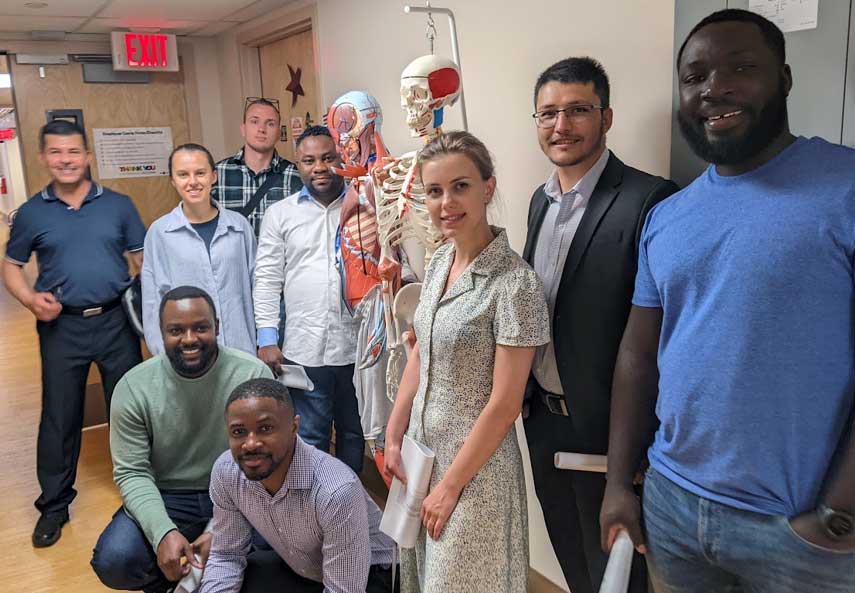- Scott Smith, M.D., (Idaho WWAMI ’76) and Paula Carvalho, M.D., (Idaho WWAMI ’84) are both involved in training refugees whose careers in medicine were interrupted by war, violence, etc.
Boise is one of the most refugee-friendly communities in the United States. In 2022, Idaho was home to approximately 1,200 refugees, with 800 of them settling in Boise, finding refuge and a fresh start in the city.
Idaho, like many other states, faces a shortage of doctors, necessitating an increased demand for healthcare professionals. There is also a demand for having culturally appropriate doctors to cater to its diverse population.
Since 2019, Scott Smith, M.D., has actively partnered with Global Talent, a postgraduate talent placement agency, to help refugees pick up their careers in medicine. Prior to retirement, Smith was involved in residency leadership for 28 years and he lends his expertise in Idaho’s healthcare landscape to provide valuable support to this medicine-minded refugees.
The path to becoming a practicing doctor for refugees requires passing the US Medical Licensing Examinations (USMLE) Step 1 and Step 2, along with completing residency, regardless of their previous medical careers. Smith assists refugees in Boise throughout this process by organizing mock tests to help them prepare for the USMLE exams effectively, offers residency application support, and in some instances, when barriers seem insurmountable, Smith explores alternative career pathways.
Smith partners with Paula Carvalho, M.D., another Idaho WWAMI alumnus (’84), to provide refugees a chance to enhance their skills and experience at the simulation lab located on the Boise V.A. campus. Using their phones, the refugees can videotape themselves performing simulations that can help bolster their residency applications, allowing them to demonstrate their proficiency in performing standard procedures such as NG tube insertion, Foley catheterization, venous IV placement, blood draw, and arterial line stick. These hands-on experiences – and ACLS certification – are all part of the standard package that helps bridge the gap between their previous medical training and the requirements for entering a medical residency in the United States.
Today, the efforts of these collective endeavors are beginning to bear fruit: from 2019 to 2022, Smith worked with 34 refugee candidates from 19 countries. Today, 5 of them are practicing, 4 are doing so in Idaho, and several others are in residency.

